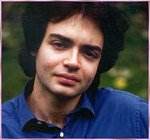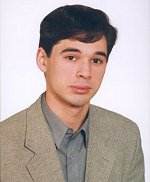S & H Concert Review
Glinka, Prokofiev, Mussorgsky (orch. Ravel), Alexander Melnikov (pf), Philharmonia Orchestra, Tugan Sokhiev, RFH, 3rd October 2002 (MB)
With the loss of its original conductor, Emmanuel Krivine, and then its scheduled soloist, Evgeny Kissin, it is a miracle this concert wasn’t cancelled outright. But miracles do happen in the oddest of orchestral circumstances and the result of placing two of the youngest of new Russian musicians against each other in Prokofiev’s dazzling second piano concerto, with this ever-adaptable orchestra, proved somewhat inspired.
Mr Kissin’s reason for withdrawing was explained curtly by the Philharmonia in the programme notes, although a photocopied handwritten letter from him with my tickets elaborated slightly by explaining he couldn’t ‘play such a difficult concerto for such a knowledgeable and demanding audience…without a thorough preparation with a conductor I had had the opportunity to collaborate with before’. A quick call to the Philharmonia press office confirmed that neither Melnikov nor Sokhiev had ever collaborated together, on this concerto or any other. It is a bluff which, I’m afraid, has left Mr Kissin severely wrong footed.
Alexander Melnikov, whom Wigmore regulars will remember for a dazzling Stravinsky Petrushka last July, is certainly one of the most promising pianists of his generation. I wrote back in July:Alexander Melnikov gave a dazzling performance of three scenes from Petrushka. Melnikov is a virtuoso in the truest sense of the word, with a technique that recalls Cziffra, but he also possesses, like Trpceski, an absolute sense of keyboard control. If at times he over-projected he masterminded a performance that had huge dynamic range. This performance spiralled like a tornado, but, with some of the cleanest articulation imaginable, he never let the virtuosity overwhelm the balance of the work. Glissandi were thrillingly done, whilst his pedalling melted the vast bass-line chords with bell-like clarity.
This performance of Prokofiev’s Second displayed similar virtues: pin point dynamics, glittering keyboard control, tonal warmth and an innate understanding for the work’s conflicting emotions. At moments during the Intermezzo soloist and conductor imbued this concerto with a Rachmaninovian sweep combined with a brittle, disjointed harmony which pointed out the grotesque inferences in the movement almost ideally. There were abundant delicacies in Melnikov’s handling of both outer movements, allied with an astringency of tone and subtle pedalling. The monumental first movement cadenza was shaped cataclysmically, but with left hand and right hand also achieving a wealth of colour it was also a performance which melded poetry and spikiness in equal measure. Sokhiev and the Philharmonia provided admirable support for their young soloist.
Tugan Sokhiev made his debut with this orchestra at the Three Choirs Festival in August and already there is a blossoming relationship between the two. The opening overture, to Ruslan and Ludmilla, had all the panache one could have asked for: feverish articulation in the strings went hand-in-hand with a dramatic sense of colour and lyricism. He followed this with a performance of Mussorgsky’s Pictures at an Exhibition which, above all, showed what control this young conductor has over an orchestra.Ravel’s orchestration drips with so many ravishing timbres and shades that no one performance can possibly hope to aspire to them all. Sokhiev’s did, more than most, helped partly by the dark-grained playing of the Philharmonia strings who, in tableaux like ‘Goldenberg and Schmuyle’ and ‘Catacombs’, produced a sonorous, misty depth of tone which proved highly atmospheric. Best of all was a shattering ‘Baba-Yaga’ projected at high velocity, the Philharmonia’s articulation awe-inspiring. If at times Sokhiev achieved a counter-balance of woodwind and brass of almost inflammatory dynamism this seemed less of a problem when the string playing, notably of double basses stretched out at the back of the stage, seemed imbued with such fervent sonority.
As an encore, Sokhiev gave us a performance of the ‘Pas-de-Deux’ from Swan Lake. It was little short of incredible – quite superlatively played – drawing to a close a memorable concert.
Marc Bridle


 Return to:
Return to: